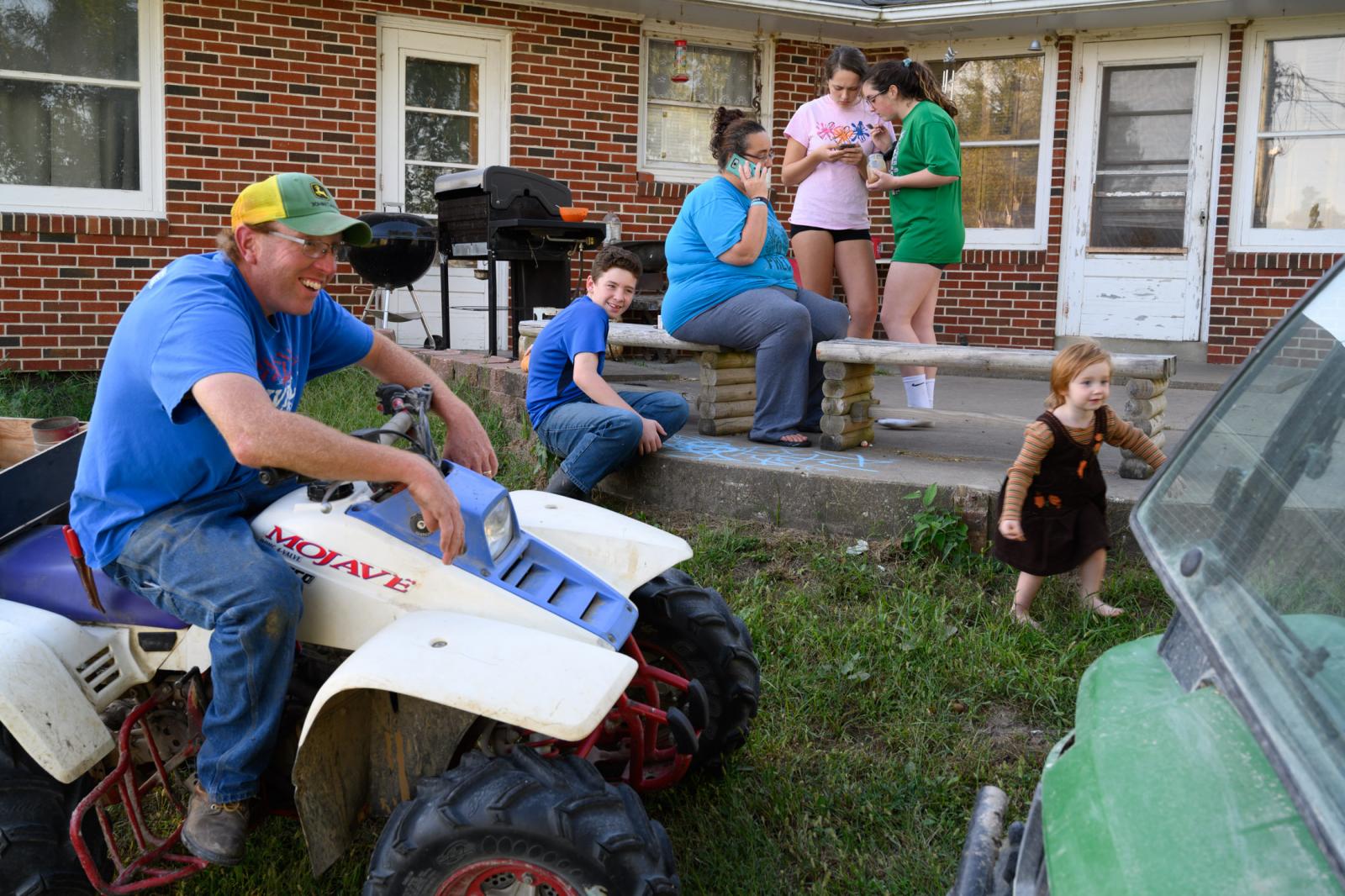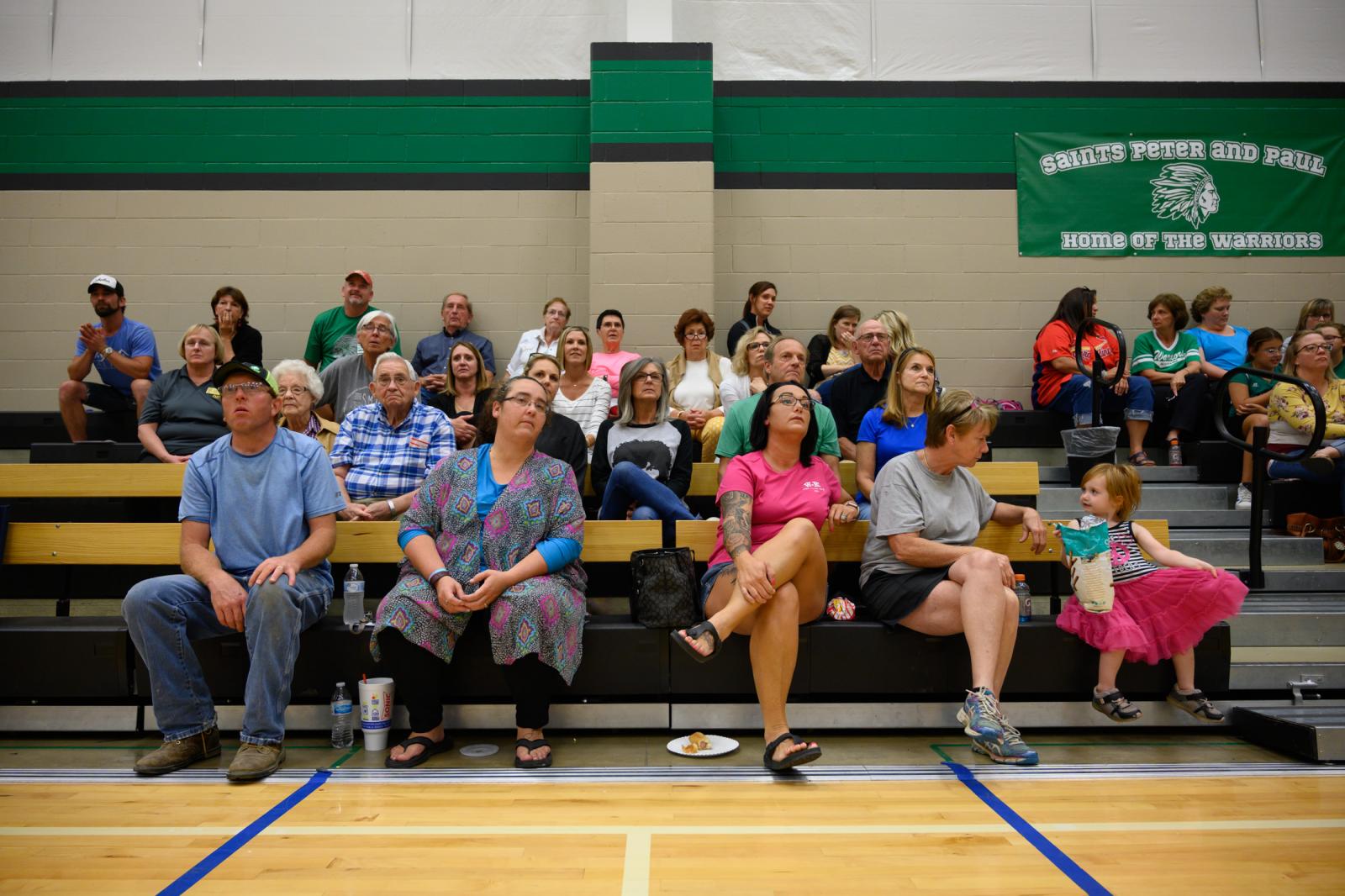Public Project
Farming an Uncertain Future
I spent time with the Lutz family who run the second-generation Vollmer family farm outside Boonville, MO. Their farm has just survived.
I could feel the family's perpetual exhaustion from running all aspects of the 500-acre farm without help. "I have big shoulders and carry a lot on them, but I don't really complain about it. I love what I do," says Barry Lutz, 44, who handles nearly everything with his brother-in-law Zach, 40.
Barry and his wife Amanda, 42, live in the four-bedroom farmhouse with their three kids, and Amanda’s mother, Laura. The house felt crowded but everyone managed to give each other space when they needed it.
Amanda is a high school math teacher in nearby Columbia. She is the family's main source of income and healthcare. "It's been hard, but we have our family and our faith. We just take it one day at a time," says Amanda. “It’s a gamble.”
"As long as we're all together, it doesn't matter where we live," says Amanda. They worry how long they can continue like this.
Family farming is at the intersection of so many crises in our country: climate change, trade, politics and access to healthcare. Family farms are part of the American identity. The question is, for how long?
2,863















